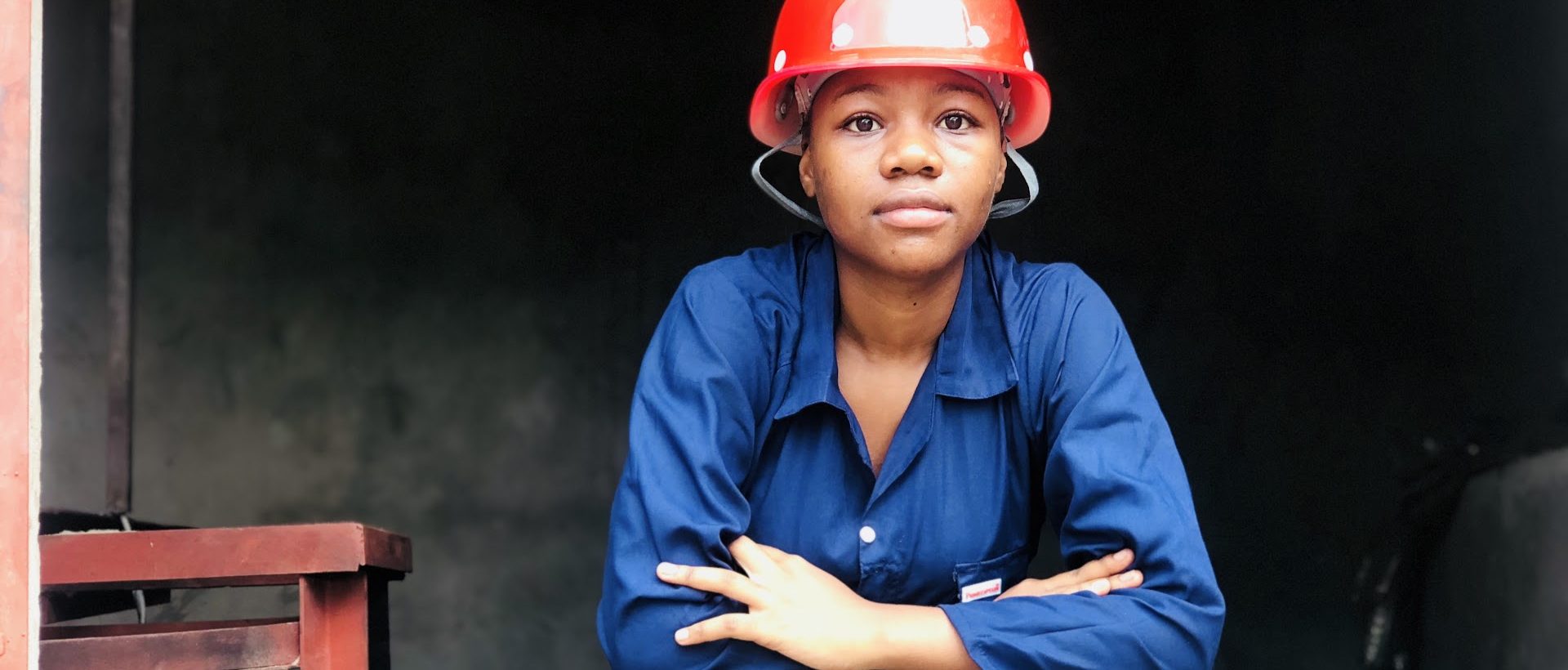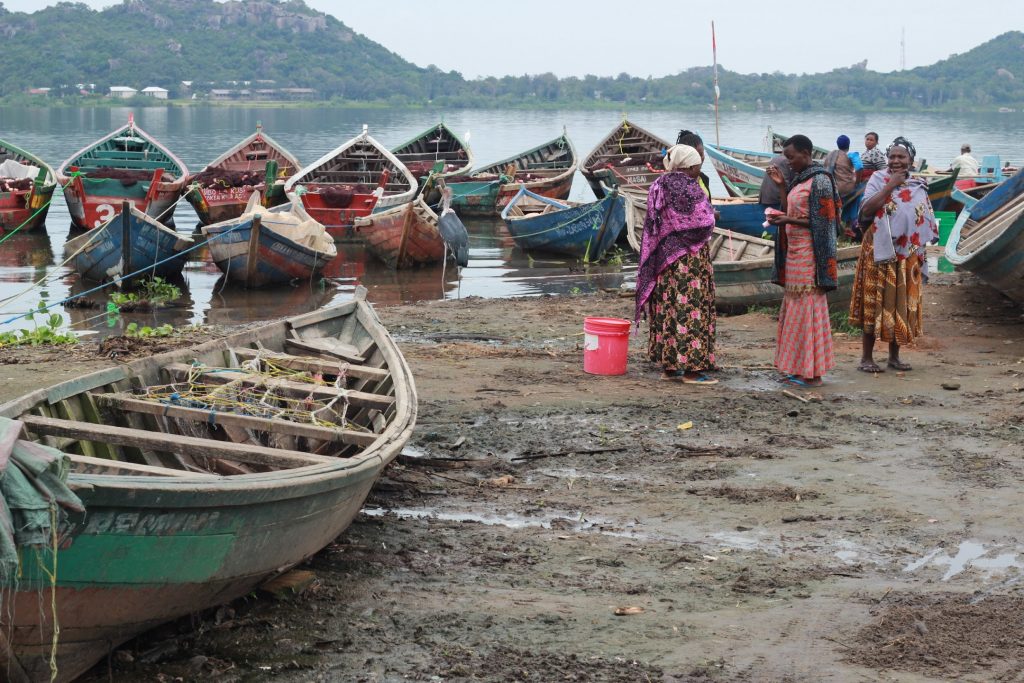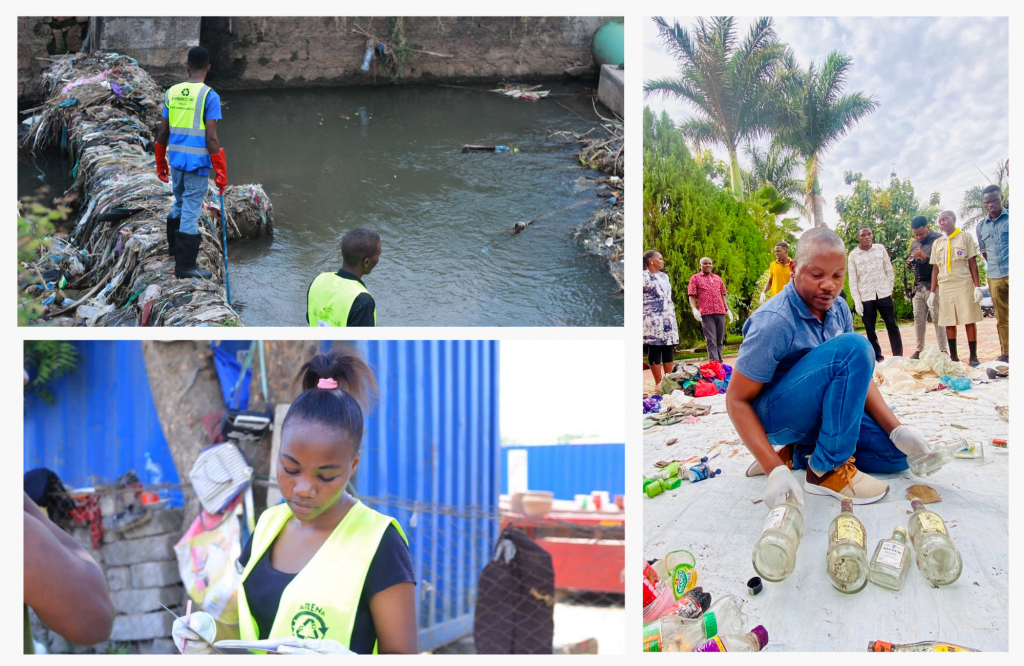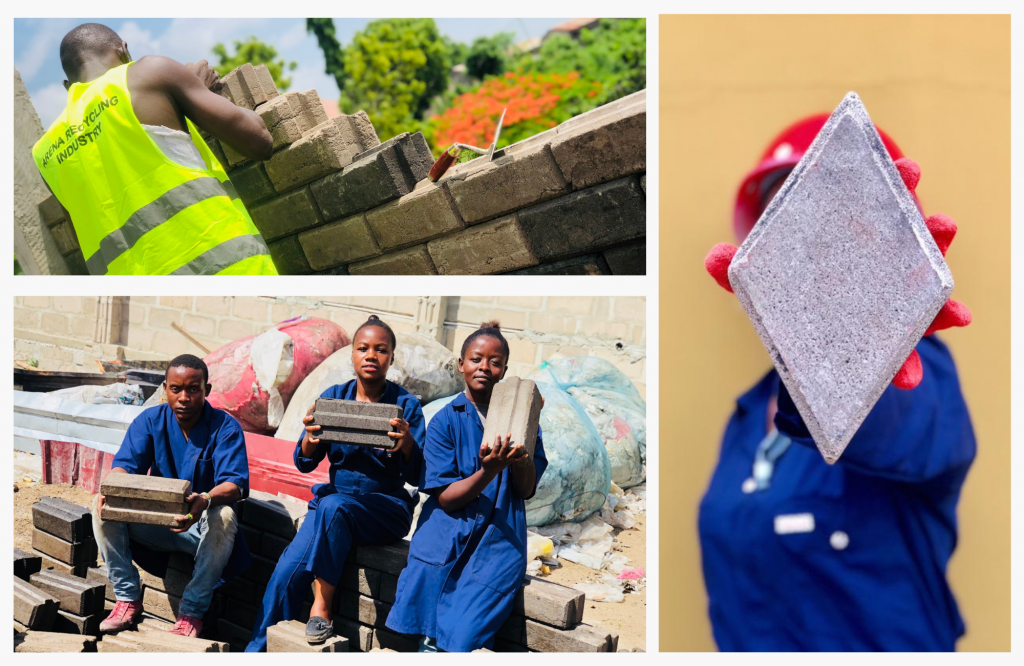The ecobricks of Hellena Sailas (Women Entrepreneurs 4 Good 2023)

Addressing a global environmental challenge, Hellena Sailas (Women Entrepreneurs 4 Good 2023) created eco-bricks produced by collecting plastic waste through giant environmental clean-ups in Tanzania.
The 28-year-old entrepreneur recalls many challenges growing up in vibrant Mbeya. Situated between lake Rukwa and lake Malawi, this city of nearly 300,000 souls in southwestern Tanzania lacked appropriate infrastructures for kids, affecting both their education journey and their health. “The long treks of over five kilometers to reach school were just the beginning. Once there, the absence of sufficient classrooms meant learning outdoors. Which is pale in comparison to the issues caused by inadequate sanitation,” Hellena Sailas says. “With limited access to clean water and sanitation, we were at a higher risk of waterborne diseases.”

Waste collection organized in the Great Lakes region of Tanzania by the company Arena Recycling. ©Arena Recycling
This critical conditions left a lasting impression on her. So when her dad passed away in 2016, a strong need to make an impact resurged. “I was hit by the profound realization that my life was my responsibility,” she says. That’s when she started to volunteer at the non profit Phedes Tanzania. As a project manager, she was heavily involved in the entrepreneurship department, “coordinating projects that ranged from sewing bridal and groom attire to organizing photo shoots… on the littered beaches of Tanzania !”
Troubled by the experience, she spent hours educating herself online to set up a solution to collect and sell plastic waste to companies. “I discovered the potential for recycled plastic to be transformed into various products, including fuel, petroleum, and, most intriguingly, building materials. This revelation led me to experiment with converting plastic waste into eco-bricks, a sustainable building material.”
She started experimenting with eco-bricks in 2019 and, after several failures, had to face skeptcisim from friends and family along the way. “They doubted the feasibility of turning plastic waste into building materials, but it only strengthened my determination.” Undeterred, she ended up elaborating several prototypes with sand – a phase she self-funded – and got her bricks tested at the University of Dar es Salaam. “Three bricks met the engineering requirements,” she says.

Collecte de déchets organisé dans la région des grands lacs de Tanzanie par l’entreprise Arena Recycling. ©Arena Recycling
Arena Recycling was finally registered in late 2020. “With the right formula in hand, I redoubled my efforts at organizing cleanups to collect the necessary plastic waste. More than environmental cleanups, these initiatives allow to gather my source material.” Various organizations and potential donors interested in sustainable solutions and environmental conservation showed up at the door. “Our work has been bolstered by partnerships with esteemed organizations such as the US Embassy in Tanzania, Young Water Solution, Phedes Tanzania, the International Secretariat of Water, the Norwegian Research Center, the University of Dar Es Salaam and the Africa-Europe Foundation”, she says. “I believe sustainability should be at the heart of all business practices. It mitigates environmental impacts and offers a competitive advantage in today’s market.”

Constructions avec des écobriques d’Arena Recycling, élaborées avec du plastique provenant des nettoyages de plages. ©Arena Recycling
So far, the company conducted 102 beach cleanups with 520 tons of plastic collected and established five plastic waste collection centers in Tanzania. 35 waste pickers work for the company and 15 people were hired on construction projects, around 70% being women. Their bricks were used in the construction of seven sanitation facilities in primary schools and 7,300 students now have access to these new services.
Coached at the HEC Incubator in Paris last year as a participant of the Women Entrepreneurs 4 Good program, Last year, the young entrepreneur benefited from support at the HEC Incubator in Paris as a participant in the Women Entrepreneur 4 Good program, an initiative by the Women’s Forum for the Economy & Society to support social or environmental projects led by women entrepreneurs around the world. Her pitch won the Audience Choice Award at the final pitch competition.
Hellena Salias is now hoping to extend her activity to more regions of Tanzania and other countries in East Africa. With products like paving stones, panels or roof tiles currently under development, she also aims at creating more jobs, particularly for women. “By providing training and employment in the recycling and construction industries, we hope to empower individuals with the skills and knowledge needed to achieve economic independence and contribute to their communities’ development,” the young entrepreneur says.
Published by Estel Plagué and Daphné Segretain

